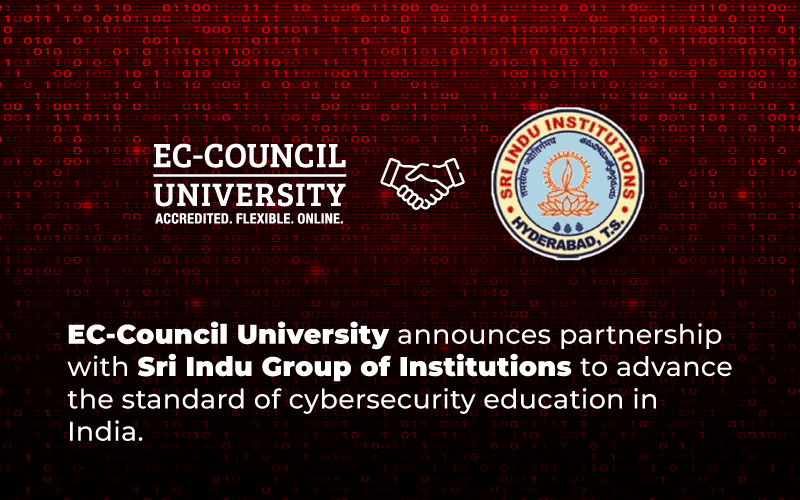In today’s digitally connected world, the demand for competent professionals in the fields of Cybersecurity and information security has never been higher. As threats to data and information systems continue to evolve, businesses and organizations are actively seeking experts to protect their digital assets. For those interested in advancing their careers in this field, pursuing a master‘s degree can provide the necessary knowledge and skills. However, choosing between a Master’s in Cybersecurity and a Master’s in Information Security can be challenging. This blog will compare these two degrees, helping you decide which path is best for your career goals.
Understanding Cybersecurity and Information Security
Before delving into the specifics of each degree, it’s essential to understand the difference between Cybersecurity and information security. While these terms are often used interchangeably, they have distinct focuses:
- Cybersecurity primarily deals with protecting computer systems, networks, and data from cyberattacks and unauthorized access. It comprises a broad range of practices, including network security, application security, and operational security.
- Information Security focuses on safeguarding the confidentiality, integrity, and availability of data, irrespective of its form, digital or physical. This field covers a wider scope, including data protection, cryptography, and risk management.
Master of Science in Cybersecurity
A Master’s in Cybersecurity is designed to equip students with in-depth knowledge of protecting information systems from cyber threats, a critical need as global cybercrime damages are expected to reach a whopping $10.5 trillion by 2025 (Cybercrime Magazine, 2020). The curriculum typically includes courses on Network Security, Ethical Hacking, Cryptography, and Incident Response and Recovery, providing a comprehensive skill set to defend against increasingly sophisticated cyberattacks.
Graduates with this degree can pursue various job roles, such as Cybersecurity Analyst, Network Security Engineer, Penetration Tester, and Security Consultant. These professionals are in high demand across industries, including finance, healthcare, and government agencies, with the figure of online job listings for cybersecurity-related positions in the U.S. reaching 457,398 from September 2023 through August 2024, highlighting the significant demand for skilled cybersecurity professionals (Cyberseek. 2024).
Master's in Information Security
A Master‘s in Information Security provides a comprehensive approach to safeguarding data, focusing on essential areas like policies, risk management, and regulatory compliance. The program often includes courses such as Data Privacy and Protection, Risk Assessment, Security Policy Development, and Compliance and Governance, equipping students to handle information according to laws and best practices. This broader focus is crucial, especially considering that the average cost of a data breach incident across companies worldwide is 4.88 million U.S. dollars. This includes detection, business losses, post-breach response, and notification, with detection and escalation being the costliest segment. Business disruption and revenue loss were among the most common consequences, affecting over 55 percent of organizations worldwide, underscoring the need for robust information security strategies (Statista. 2024).
Graduates with this degree can pursue job roles such as Information Security Manager, Chief Information Security Officer (CISO), Risk Manager, and Compliance Officer. These positions involve strategic planning and policy-making, which are vital for organizations aiming to protect their information assets in an era where the average cost of a data breach exceeds $4.88 million (IBM. 2024). The skills acquired in this program prepare professionals to tackle the complexities of today’s digital security landscape effectively.
Cybersecurity vs. Information Security: Which Degree Should You Choose?
When deciding between a Master’s in Cybersecurity and a Master’s in Information Security, consider the following factors:
1. Career Goals
- If you’re interested in the technical aspects of protecting computer systems and networks, a Master of Science in Cybersecurity may be more suitable.
- If you prefer a broader focus on data protection, policy development, and risk management, a Master’s in Information Security could be the better option.
2. Industry Demand
Both degrees are in high demand, but the roles they prepare you for can vary significantly. Cybersecurity roles are often more technical, requiring hands-on skills in managing and protecting networks and systems. In contrast, information security roles may involve more strategic responsibilities, such as policy development and regulatory compliance.
3. Course Content
Review the curriculum of the programs you‘re interested in to see which aligns best with your interests and career aspirations. Cybersecurity programs typically delve deeper into technical subjects like ethical hacking and network security, while information security programs may focus more on governance and risk management.
4. Certification Opportunities
Many master‘s programs offer opportunities to earn industry-recognized certifications, such as Certified Ethical Hacker (CEH). Consider which certifications are included or supported by the program, as they can significantly enhance your employability.
Pursuing Cybersecurity and Information Security Degrees Online
The flexibility of online education makes it easier than ever to pursue a master‘s degree while balancing other responsibilities. Many institutions offer online cybersecurity degrees and information security degrees that provide the same quality of education as on-campus programs. These online programs often include interactive elements, such as virtual labs and live sessions, to ensure a comprehensive learning experience.
Benefits of Online Learning:
- Flexibility: Study at your own pace and schedule, making it easier to manage work and family commitments.
- Accessibility: Access courses and resources from anywhere, eliminating the need for relocation.
- Networking: Connect with peers and professionals worldwide, expanding your professional network.
Choosing between a Master of Science in Cybersecurity and a Master‘s in Information Security depends on your career aspirations, interests, and the type of work you want to pursue. Both degrees offer excellent career prospects and can substantially improve your knowledge and skills in protecting digital and information assets. By understanding the differences between these fields and what each program offers, you can make an informed decision that supports your professional goals. Whether you choose to specialize in Cybersecurity’s technical aspects or focus on the strategic elements of information security, you‘ll be well-prepared to meet the challenges of the ever-evolving digital landscape.
References:
- Cybercrime Magazine. (Nov 13, 2020). Cybercrime To Cost The World $10.5 Trillion Annually By 2025. https://cybersecurityventures.com/cybercrime-damages-6-trillion-by-2021/#:~:text=The%20damage%20cost%20estimation%20is,2025%20than%20it%20is%20today.
- Cyberseek. (2024). Cybersecurity Supply/Demand Heat Map. https://www.cyberseek.org/heatmap.html
- Statistica. (Nov 19, 2024). Data breaches worldwide – statistics & facts. https://www.statista.com/topics/11610/data-breaches-worldwide/#topicOverview
- IBM. (2024). Cost of a Data Breach Report 2024. https://www.ibm.com/reports/data-breach








